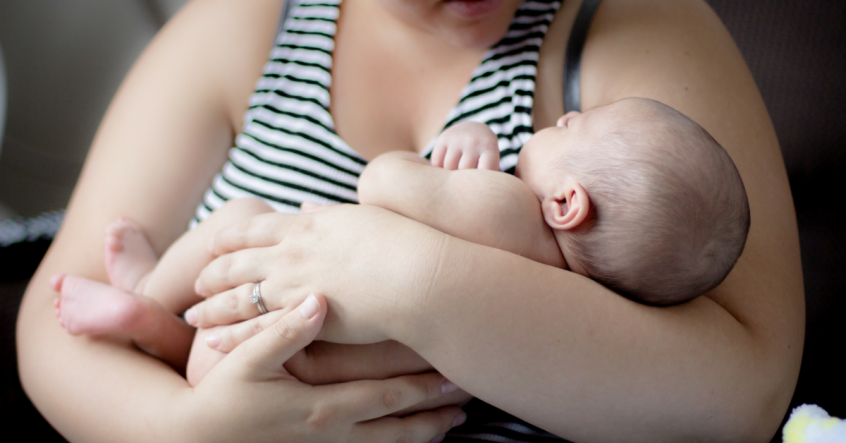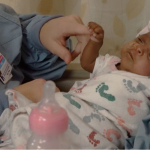 Rachel Kiser
Rachel Kiser
Blogger | Mom of Two
This month the United States Senate passed a landmark piece of legislation for women and families across our country. Representative Katherine M. Clark (D-Mass) proposed the Bringing Postpartum Depression out of the Shadows Act, which would provide federally-funded grant money to states that would allow them to develop and maintain postpartum depression screening and treatment programs. The bill was approved by the House of Representatives on November 30, and on Wednesday, December 7, it passed in the Senate.
Clark, who is, herself, a mother of three, took to Twitter to explain:
“No mom should feel alone while suffering from the pain, isolation, and frustration that comes with postpartum depression. The health and success of families include — and begin with — the whole health of our moms. The passage of the Bringing Postpartum Depression Out of the Shadows Act means we’re taking active steps to break down the stigmas that have kept moms from getting the care they need and deserve.”
Experts estimate that over 600,000 women will suffer from postpartum depression this next year– making that roughly 1 in 7 new moms. Even more staggering than those statistics is the fact that only 15% of moms will seek treatment for their PPD.
The reasons women don’t seek help in dealing with their postpartum depression are many, of course. Some new mothers are afraid of judgment and the stigma surrounding the ailment, viewing it as a sort of failure or inability to be a good mother. Others may downplay the severity of what they’re going through. Then there are the many women who undoubtedly have no idea that there is a name for what they’re going through, and that there is help available. They may chalk their exhaustion and frustration up to simply being a new momcon with new challenges to face, not realizing that there is help and support available.
The CDC cites various symptoms of PPD: Crying more often than usual, Feelings of anger, withdrawing from loved ones, feeling numb or disconnected from your baby, and worrying that you will hurt your baby are a few signs to be mindful of. If you or someone you know is suffering from these symptoms, please encourage them to speak to their doctor immediately. The effects of PPD on both mother and baby are widespread, and often have dire consequences.
“As a mom of three boys, I know how rewarding, as well as how overwhelming and exhausting, a new baby can be,” Clark told The Huffington Post. “Moms comprise fewer than a fifth of Congress, so it’s especially important for us to bring these perspectives into policymaking,” she added. “I introduced this bill because our moms need to know they matter ― that we, as a nation, value them and will fight for the health and success of their families.”
By passing this legislation, our lawmakers are playing a huge role in demystifying a very common illness. An illness that devastatingly costs women their lives, and children their mothers, every single year. If postpartum depression screening becomes a routine part of postnatal care, and treatment is readily available, women will have fewer reasons to avoid being upfront about their pain. This can only serve to strengthen the most basic, but important, of our nation’s infrastructures: the family.
Rachel is a wife and mother living in Raleigh, North Carolina. She’s a fan of good coffee, wearer of gray t-shirts, and is constantly starting books she will never finish. Her family is her joy, and she loves to engage with other moms and dads on matters of parenting. Her blog posts have also been featured on the Today Show Parenting Blog and Scary Mommy.
View all posts by Rachel Kiser here.







One Comment on “Congress Passes Bill Giving Women Greater Access to Postpartum Depression Screening”
I am so happy things have changed,we need more support for postpartum depression.